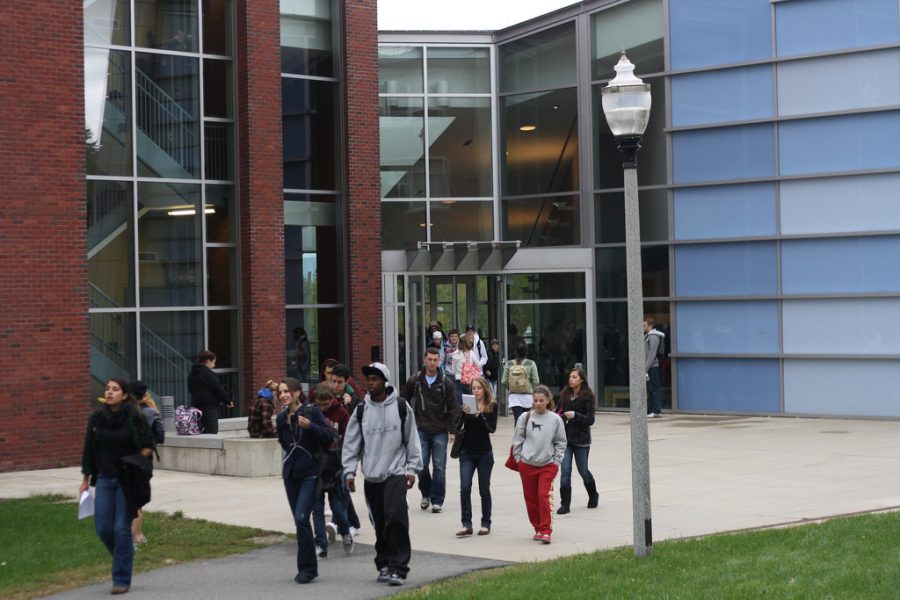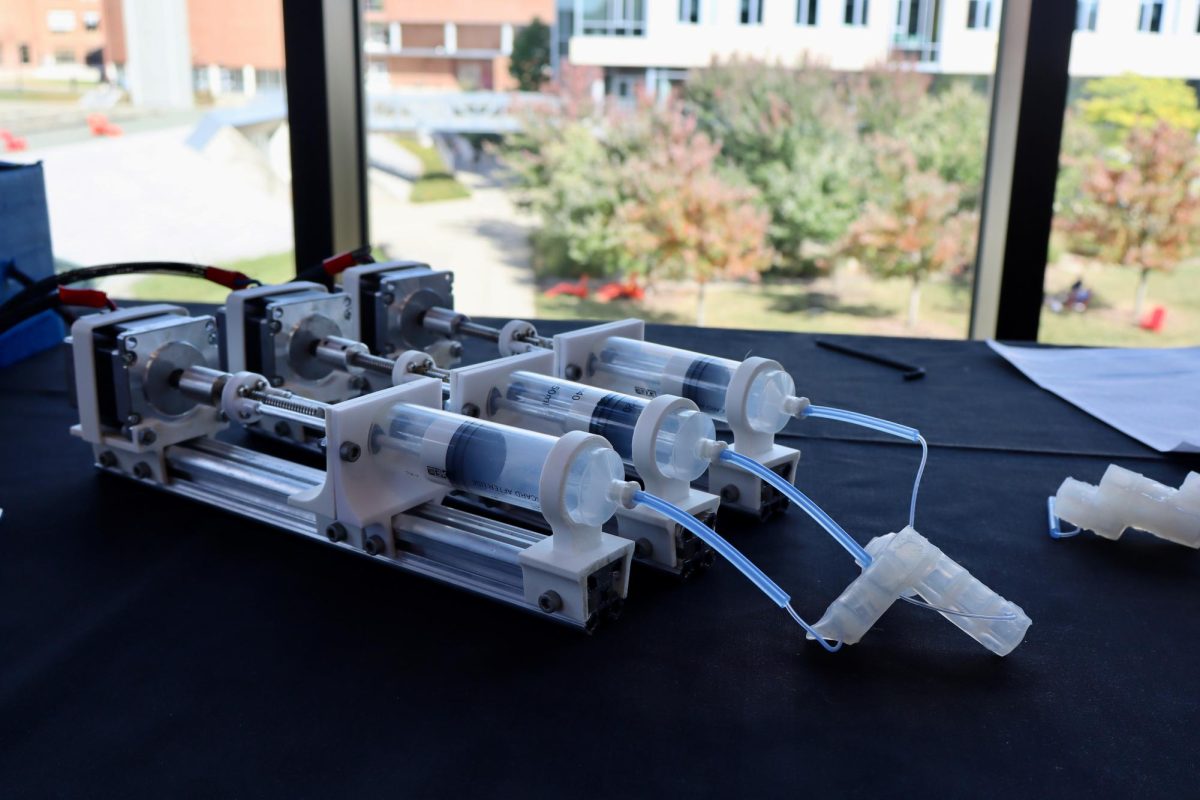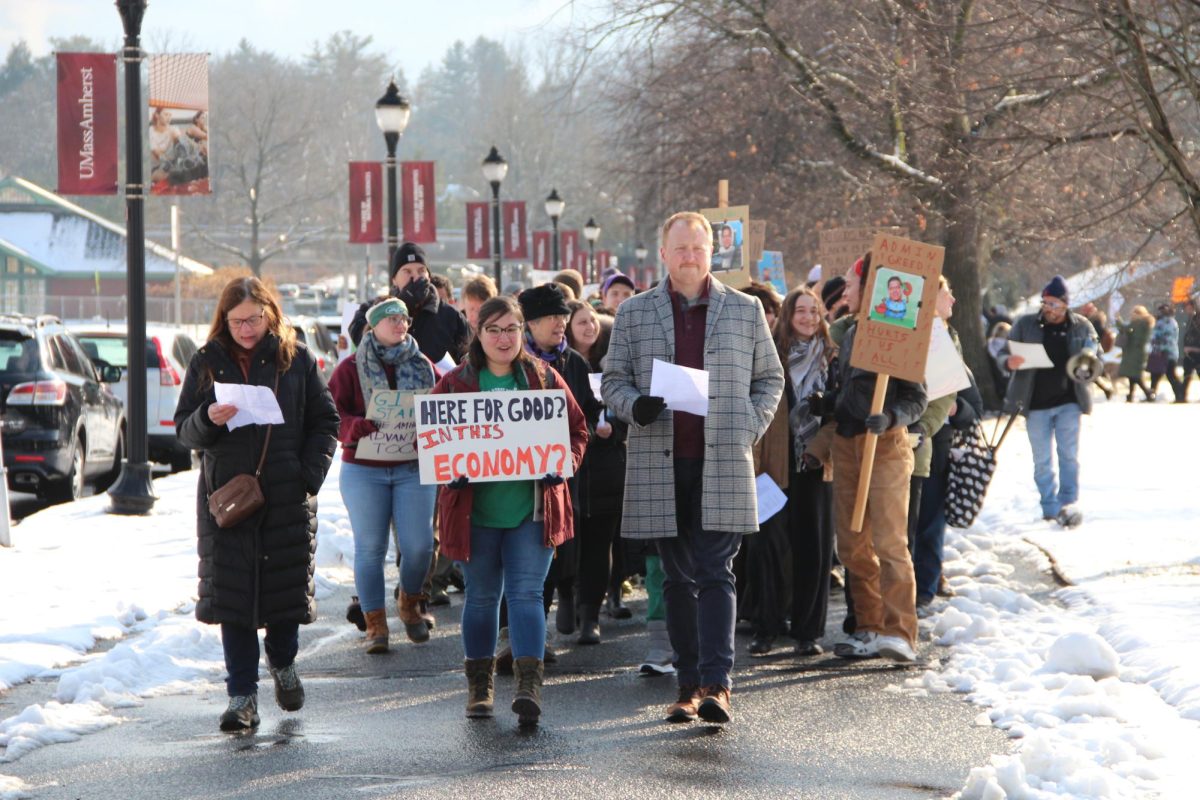Professor and Director of the Center for Data Science at the University of Massachusetts Andrew McCallum will collaborate with the Chan Zuckerberg Initiative through a new partnership to use artificial intelligence to create a navigable map of scientific knowledge.
The project, known as Computable Knowledge, seeks to “accelerate the pace of scientific discovery,” according to a video posted by the Chan Zuckerberg Initiative on Facebook.
Within just biomedicine, there are over 1,000,000 research papers published every year, according to CZI’s post announcing the partnership on Facebook. Computable Knowledge will build a map, driven by AI, that explores and discovers potential connections between millions of scientific research articles—new and historical.
In CZI’s first partnership with UMass, it has made an initial $5.5 million grant to the Center for Data Science, and “is building a team of AI scientists to collaborate on the project,” according to the University’s press release.
“We are excited for the opportunity to advance our research in deep learning, representation and reasoning for such a worthy challenge,” said McCallum in the release. “We believe the result will be a first-of-its-kind guide for every scientist, just as map apps are now indispensable tools for navigating the physical world. We hope our results will help solve the mounting problem of scientific knowledge complexity, democratize scientific knowledge, and put powerful reasoning in the hands of individual scientists.”
According to CZI’s website, the initiative “will accelerate the sharing and awareness of scientific knowledge by funding strong existing programs and building tools to advance the field.”
“By uncovering patterns between different areas of research, Computable Knowledge could potentially point scientists in new directions for their experiments,” Priscilla Chan, Co-Founder of CZI, wrote on Facebook. “If we hope to cure, prevent, or manage all diseases in our children’s lifetime, we must help scientists find new ways to explore, navigate, and reason across research.”
Founded in 2015, the Center for Data Science has grown rapidly in three years. According to Brant Cheikes, executive director of the Center, the story of this partnership coming to fruition dates back several years.
In 2016, MassMutual committed $15 million over 10 years to the Center and Cyber Security Institute, also at UMass. According to Cheikes, MassMutual’s “incubator for data science talent is right here, in Amherst.
“We’ve been using those funds…to grow our data science faculty,” Cheikes said. “We’re really trying to grow the number of students who we are able to train and send back into the workforce.”
Shortly after the partnership with MassMutual, the Massachusetts Technology Collaborative, MassTech, gave the Center “an additional $5 million grant that would play out over five years that we’ve been using to acquire high performance computing equipment…that lets us do our research orders of magnitude more quickly than we were able to do it before,” according to Cheikes. With these two investments, the region and the University have grown as contributors to the industry of data science.
“Back in 2009-2010…a research agency in the federal government created a new research program called Foresight and Understanding from Scientific Exposition…The motivation for the program was to develop new technologies that could read full-text scientific articles because more and more of scientific publications globally are now made available in full-text digital form,” Cheikes said.
McCallum participated on this governmental project with his team. Through that work, he became involved with Meta, a small company working to commercialize similar technologies. Meta, an actively-growing company, was acquired by CZI, according to Cheikes.
Cori Bargmann, president of Chan Zuckerberg Science, wrote in a post on Facebook, “At the Chan Zuckerberg Initiative, we believe that by creating tools and technologies that can benefit the entire community, we can accelerate the pace of scientific progress. That’s why I’m excited that we are supporting and collaborating with Andrew McCallum and the UMass Amherst Center for Data Science on a joint research project that aims to make scientific knowledge computable.”
According to Cheikes, this partnership represents an effort to build a technology transition pipeline.
“[We. CZI] have university researchers like Andrew and his students doing their work…in the lab in close collaboration with Chan Zuckerberg people, with what’s now called CZI Meta, and this group would then develop new ideas as algorithms were demonstrated to work and be effective in a university lab setting they could move into the commercial technology that Meta continues to develop.”
“We are grateful for CZI’s generous support and recognition of UMass Amherst’s leadership in artificial intelligence,” said UMass Chancellor Kumble Subbaswamy in the press release. “Andrew McCallum and his colleagues are engaged in extraordinary and innovative research, and we are thrilled to be partners with CZI in their goal to cure, prevent, or manage all diseases by the end of the century.”
According to the press release, Massachusetts Governor Charlie Baker said, “We are very pleased CZI selected UMass Amherst to play a major role in this groundbreaking initiative that will give scientists tremendous power to share their research around the world.”
“Massachusetts’ renowned research and health care institutions make the Commonwealth an attractive location to advance CZI’s work, and we welcome their engagement here,” Baker added.
Elizabeth Wallace can be reached at [email protected].



















